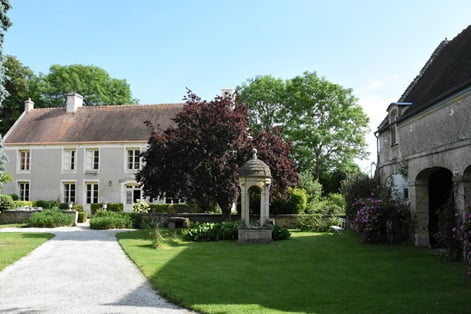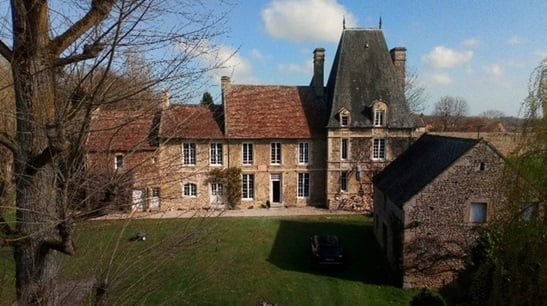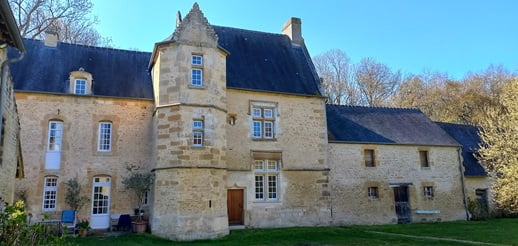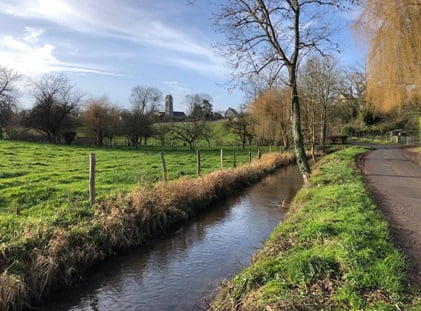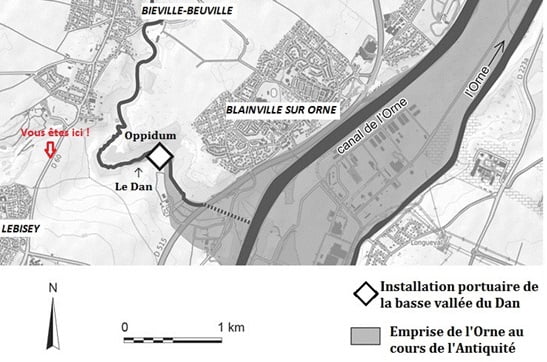Manor Le Cocq 17 th century
The manor and its well
The LeCocq family from Biéville had a major influence on the town through the centuries. Successful bidders of the farm fiefdom* of Biéville and lords of the place, the family requested the manor’s construction in 1632. This date is embossed on the building’s frontage.
In the middle of the yard surrounded by stables, a press, a tithing barn, and a cart hangar dated from 1789, is a lovely well in the Louis XIII style, decorated with a dome standing on top of four small columns of the Tuscan order. This manor was built at the request of Charles LeCocq, Sir of Biéville and alderman of Caen, and then passed down to his son and grandson.
Jean-Pierre LeCocq sold the farm-fiefdom of Biéville in 1679 to a man named Jean-Baptiste Colbert who, before becoming Louis XIV’s great minister, established himself in the region as the letting agent of In Commendam abbot of Saint-Etienne Abbey in Caen and built a substantial estate. The farm-fiefdom went to Colbert’s descendants, including his son Jules Armand Colbert, Marquis of Blainville, through inheritance and aristocratic family alliances (notably the Rochechouart and Gillain de Bénouville families) until the French Revolution seized the property in accordance with a law passed on Frimaire 12th, Year II (December 2nd, 1793).
The manor was most likely sold as national property. For that matter, a certified document of Sir Couvrechef’s acquisition of the manor in 1793 has been found. At the Liberation, British troops enrolled in the battle of Caen set their quarters on the property. As an aside, a French lieutenant serving as their translator wrote in his logbook on August 4th, 1944: ‘Biéville. Slept in Colbert’s home.’
*The farm-fiefdom is a lease agreement through which Royal Authority entrusts a vassal with the management of its domain by way of an annuity.

